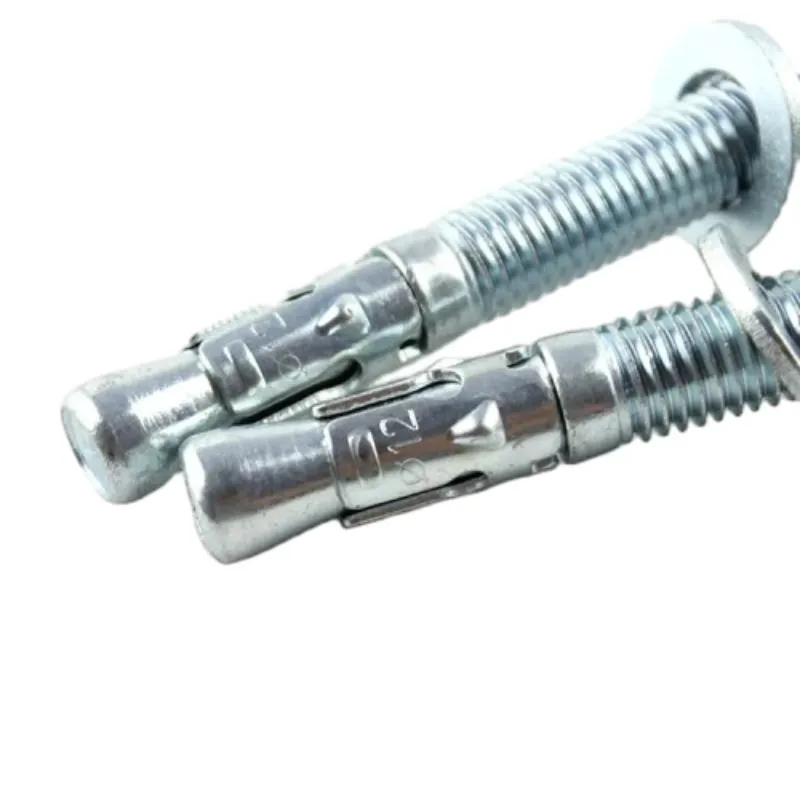Oct . 22, 2024 13:00 Back to list
High-Strength Type 316 Stainless Steel Bolts for Corrosion Resistance Applications
Understanding Type 316 Stainless Steel Bolts
When it comes to fastening materials in environments exposed to moisture, chemicals, and varying temperatures, choosing the right type of bolt is crucial. Type 316 stainless steel bolts have emerged as one of the most reliable options in such applications. Renowned for their excellent corrosion resistance and mechanical properties, these bolts are often utilized in many industries including marine, chemical, and food processing.
Composition and Characteristics
Type 316 stainless steel is an austenitic chromium-nickel alloy that includes molybdenum, which enhances its corrosion resistance, particularly against chlorides and other chemical agents. The typical composition of 316 stainless steel includes approximately 16-18% chromium, 10-14% nickel, and 2-3% molybdenum. This specific formulation gives Type 316 its remarkable ability to withstand harsh environments while providing structural integrity.
One of the standout features of Type 316 bolts is their ability to resist pitting and crevice corrosion, a common issue in marine environments. Additionally, the presence of molybdenum in the alloy makes these bolts ideal for applications in acidic environments, where other types of stainless steel may fail.
Applications of Type 316 Stainless Steel Bolts
Due to their exceptional corrosion resistance, Type 316 stainless steel bolts are commonly used in
1. Marine Applications These bolts are widely used in shipbuilding, boat fittings, and coastal infrastructure because they can withstand saltwater exposure, which is highly corrosive to lesser materials.
2. Chemical Processing Industries that deal with chemicals and aggressive cleaning agents utilize 316 bolts to ensure that their structures remain intact and secure, minimizing the risk of leaks and failures.
3. Food and Beverage Industry In food processing, hygiene and material safety are paramount. Type 316 stainless steel is often the material of choice due to its non-reactive nature, making it safe for use in food production environments.
type 316 stainless steel bolts

4. Pharmaceuticals The pharmaceutical industry demands the highest standards of cleanliness and hygiene. Type 316 bolts are used in machinery and equipment that come into direct contact with pharmaceuticals due to their resistance to contamination.
Benefits of Using Type 316 Stainless Steel Bolts
1. Corrosion Resistance The most significant advantage of Type 316 bolts is their durability against environmental factors. They can withstand extreme conditions, ensuring longevity and reducing the need for frequent replacements.
2. Mechanical Strength Type 316 bolts maintain their strength even at elevated temperatures, making them suitable for high-stress applications.
3. Workability & Availability Type 316 stainless steel can be easily fabricated into various shapes and sizes, including hex bolts, lag bolts, and custom designs, ensuring that engineers can find the exact fit for their needs.
4. Aesthetic Appeal Stainless steel has a clean, polished finish that maintains its appearance over time, making it suitable for visible applications.
Installation and Maintenance Considerations
While Type 316 bolts are resistant to corrosion, proper installation is critical. Using appropriate lubricants can help prevent galling, a phenomenon where threads seize due to friction. Additionally, while these bolts are resistant to many environmental factors, regular inspection is necessary to ensure they have not developed stress fractures or fatigue over time, especially in critical applications.
Conclusion
Type 316 stainless steel bolts are an excellent choice for applications requiring durability and resistance to corrosive environments. Their versatility allows for use in various industries, making them a staple in the engineering and manufacturing sectors. Understanding their properties and applications can lead organizations to make informed decisions, ultimately enhancing the performance and lifespan of their projects. Whether in a harsh marine environment or a sterile pharmaceutical facility, Type 316 stainless steel bolts continue to prove their value and reliability in diverse applications.


